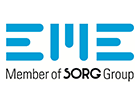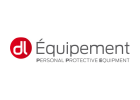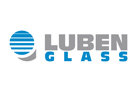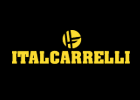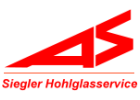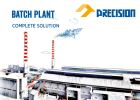CAM YAPI was established in Istanbul at the end of 1999 with the aim of producing architectural glass and became the first company capable of processing jumbo glass sizes in Turkey. Today CAM YAPI employs around 275 people who generate an annual turnover of 30 million Dollars, 50% of which come from export business. The company started its production in a 800 m² hall, now the production surface is 27,000m² spread over two sites. LiSEC interviewed the company’s CEO, Abidin Akulker on success factors and LiSEC as a supplier of machine solutions for the flat glass processing industry.
LiSEC: What is the positioning of CAM YAPI and which business do you focus upon?
Abidin Akulker: We focus on big size IG unit production and processing, laminating of special glass types, projects which required special handling and logistics and involve difficult production processes. That is our strength.
LiSEC: Which strategic focus do you have?
Abidin Akulker: Strategically we focus on structural glazing business. We target projects in Turkey as well as abroad which require high quality products that are delivered on time and projects where technical support is important.
LiSEC: What are the success factors and how do you meet customers’ expectations?
Abidin Akulker: we emphasise on quality and on-time delivery. We work nearly at zero-error level. The glass solutions we produce are delivered just in time – they are processed as soon as they arrive at the construction site. Product errors or changes in delivery time would cause an enormous delay and are simply not accepted.
LiSEC: How did the cooperation with LiSEC start?
Abidin Akulker: That must have been in 2006 – I was looking for a sealing roboter. Those days I was targeting a large redidential project. When I saw the building on the plan, I knew it would be impossible to produce the IG units with the equipment I had – since it was all manually operated. I needed an automated solution and contacted LiSEC.
LiSEC: Did you compare solutions available on the market?
Abidin Akulker: In IG production LiSEC is Nr. 1 to me. I grew up in the glass business myself and I am an engineer - I can judge machinery by its design. The design of LiSEC equipment is more thought through. One can see that LiSEC is a glass producer themselves, you can tell from the design of the machines that they are born in this industry.
At a certain point in time we got a lot of orders which included many glass sheets that needed to be tempered and hence the edges to be seamed. 2009 I ordered a KSR from LiSEC – which still is the best machine available on the market if you compare it with solutions from different brands. I ordered the KSR because of its good reputation on the market, and I am able to compare since I have experience with other processing machines as well. From a design point ot view, the KSR is brilliant – which results in a top grinding quality. This high grinding quality and the fact that you can grind shapes as well were the two decisive features to opt for the KSR. Believe me: cycle times are not the only issue in this business.
LiSEC: How do you handle spare parts – do you work with original ones?
Abidin Akulker: Yes, I do. The benefit of using LiSEC spare parts and service is extremely high for us, it simply increases the machines’ life time. On top of that, we have less down time, we can secure our production and make our offers with much more self-confidence.
LiSEC: Which goals do you have for the future?
Abidin Akulker: For the oncoming years I expect less demand than now in the Turkish market, so there will be no major investments. The number of available machines per production step have been doubled in the last few years. I will let my son, who is at university now, decide if he will lead the company in future or not. But whatever plans we have with the company – LiSEC will be part of it.
As to my personal goal, I would like to develop new solutions to further increase quality in façade building while working closely with universities. Glass processing is more than buying machines and just processing glass, it is about using the knowledge you have to come up with ideas for issues that bother you, for issues you know there must be a better way to do it. I want to develop something and leave this behind me for the next generation – a fit company, ideas to improve products and sound cooperations with universities.
Fact box: Cam Yapi - processing glass with LiSEC technology
2 IG lines including sealing robots
1 glass seaming machine type KSR
1 frame bending machine type BSV 45 ANK
3 manual sealing machines type TAL 60 SI
3 butyl machines type LBH 25V




